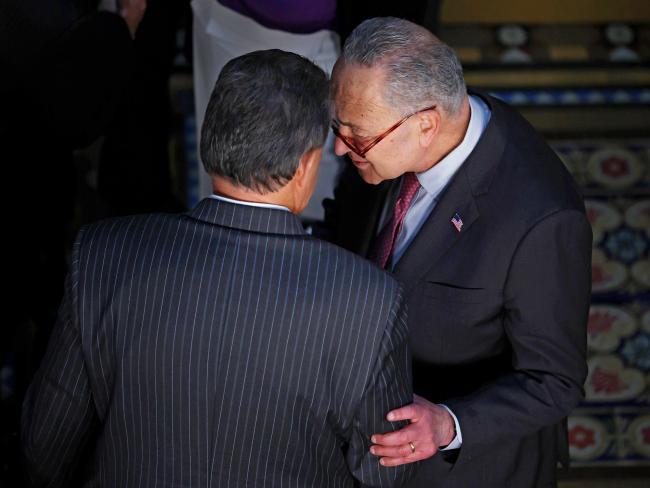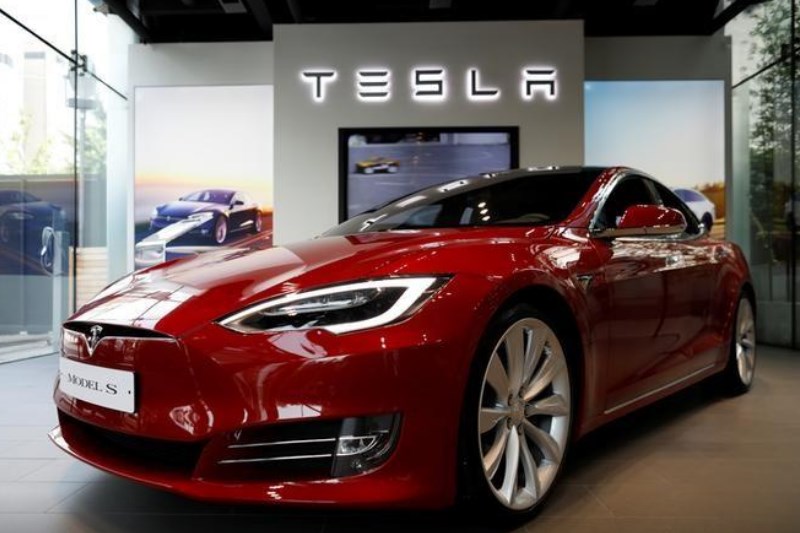(Bloomberg) --
It was tempting when Democrats announced their surprise climate deal to imagine American auto executives popping champagne bottles. But any bubbly probably ought to stay on ice until Washington finalizes the fine print of the bill that would lift the cap on tax credits for electric vehicles.
Just three months ago, Senator Joe Manchin said it would be “ludicrous” to extend the $7,500 incentive with inflation running hot and automakers struggling to keep up with demand. That comment all but dashed the hopes of car companies that had been lobbying the Biden administration to lift the 200,000-vehicle limit at which the perk begins to wind down. Tesla (NASDAQ:TSLA), GM and Toyota have crossed that threshold; Nissan (OTC:NSANY) and Ford are closing in.
While Wednesday’s news represented sweet relief, it’s still unclear just how stingy this bill will be about eligibility. For EVs to qualify, their batteries will need to contain minerals extracted from or processed in a country the US has a free trade agreement with, and a portion of components to be manufactured or assembled in North America.
These requirements would start phasing in for components after 2023 and minerals after 2024, timelines that could be tricky to meet. Automakers and battery manufacturers are spending billions on new North American factories, but many of these facilities are still being planned and constructed. China — America’s trade nemesis — accounts for almost three-quarters of manufacturing capacity for lithium-ion batteries and more than half the world’s capacity to refine lithium.
Manchin may have come around, but he’s setting the bar high for carmakers, requiring them to use a domestic supply chain that hasn’t fully materialized yet.
“This ties that noose a little tighter,’’ said Jeff Yambrick, a former executive at Chinese battery maker Svolt, who’s now running a startup that sets up cell factories and supply chains for firms operating in the US. “You have to do things in America.”
The legislative text released this week could change before it wins approval by Congress. But it’s clear Beijing is on Washington’s mind. Manchin himself told Bloomberg’s Steve Dennis that the EV credits are designed to keep China from dominating battery components and critical minerals.
While this level of scrutiny on China is no surprise, it could be a headache for Contemporary Amperex Technology Co. Ltd. and its customers. The giant Chinese company has been scouting factory sites in North America and just reached a deal to supply lithium iron phosphate batteries to power Ford’s Mustang Mach-E sport utility vehicles and F-150 Lightning pickups.
Manchin and his fellow China hawks must be careful not to go too far and set content targets that push the auto industry deeper into the arms of Chinese suppliers, said Abigail Wulf, the director of critical minerals strategy at Securing America’s Future Energy, a Washington-based nonprofit that advocates for US energy independence.
“If this isn’t enacted properly, with the right amount of finesse, we’ll be even more beholden to China,” Wulf said in an interview. “We want to make sure this is workable for the auto companies.”
Bloomberg reached out to seven automakers about the bill, most of which said they’re still getting their arms around it. In its current form, it would lift the EV sales cap at the end of this year and extend availability of the credits by a decade.
“If you look at the landscape as it exists today, it's a challenge, but it's doable,” said Joe Britton, the head of the Zero Emission Transportation Association, which advocates for EV adoption. “We can meet these metrics.”
©2022 Bloomberg L.P.

